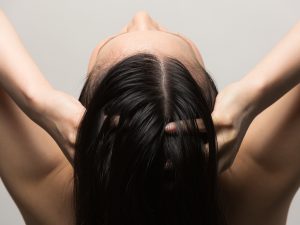Symptoms, Causes, and Natural Treatment Options

Seborrheic dermatitis is a common skin condition that affects the scalp, causing redness, flakiness, and itching. While it’s not contagious or life-threatening, it can be uncomfortable and frustrating to deal with. Fortunately, there are several natural hair care options available to help manage symptoms.
Symptoms of Seborrheic Dermatitis
Seborrheic dermatitis typically affects the scalp, but it can also occur in other oily areas of the body, such as the face, chest, and back. Common symptoms of seborrheic dermatitis include:
- Red, itchy, and inflamed scalp
- Flaky and scaly patches on the scalp
- Greasy or oily scalp
- Burning sensation on the scalp
- Hair loss or thinning in severe cases
Causes of Seborrheic Dermatitis
The exact cause of seborrheic dermatitis is not fully understood, but it’s believed to be related to an overgrowth of yeast on the skin. Other factors that can contribute to seborrheic dermatitis include stress, hormone changes, cold weather, and certain medications.

Natural Treatment Options for Seborrheic Dermatitis
Natural hair care can play a significant role in managing seborrheic dermatitis. Here are some natural treatment options to consider:
Tea Tree Oil
Tea tree oil has natural antifungal properties that can help reduce the growth of yeast on the scalp. Simply add a few drops of tea tree oil to your shampoo or massage it into your scalp with carrier oil.
Aloe Vera
Aloe vera has anti-inflammatory and antibacterial properties that can help soothe the scalp and reduce redness and itching. Apply fresh aloe vera gel to your scalp and leave it on for 20-30 minutes before washing it off.
Apple Cider Vinegar
Apple cider vinegar has natural antimicrobial properties that can help reduce the growth of yeast on the scalp. Mix equal parts of apple cider vinegar and water and use it as a rinse after shampooing your hair.
Natural Shampoos
Look for natural shampoos that are free from harsh chemicals like sulfates and parabens. These can irritate the scalp and make seborrheic dermatitis worse. Instead, opt for gentle, natural shampoos that are formulated to soothe the scalp.
In conclusion, seborrheic dermatitis can be uncomfortable and frustrating, but there are natural hair care options available to help manage symptoms. By incorporating natural remedies like tea tree oil, aloe vera, and apple cider vinegar into your hair care routine, you can help reduce redness, itching, and flakiness, and promote a healthy scalp.

